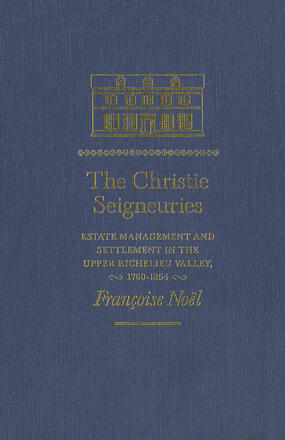
The Christie Seigneuries
Estate Management and Settlement in the Upper Richelieu Valley, 1760-1854
Description
During the period following New France's fall to the British, Lieutenant-Colonel Gabriel Christie acquired five seigneuries in the Upper Richelieu Valley. They continued to belong to the Christie family until well after the end of seigneurial tenure. Seigneurial property rights were used, Noël shows, to control access to land, timber, mill sites, and other resources. Because of the increasing importance of these resources in the colonial economy, the seigneury itself began to have a more important impact on the social structure of the colony. Significant changes in the management of the Christie Seigneuries came with each generation of the family -- changes that reflected the personality of the seigneur and the changing socio-economic conditions. There was, however, a persistent preoccupation with capitalist exploitation of the seigneur's domain property. Accordingly, Noël maintains, seigneurial tenure during the century of British colonial administration was important not so much because of its differences from freehold tenure but because of its similarities: it could be used by large proprietors to monopolize scarce resources. The role of entrepreneurial seigneurs in Lower Canada's socio-economic development is thus only one variation of the many forms of interaction between traditional rural economies and the great merchants of the staples trades -- a historical phenomenon common to all of British North America. Noël also contends that the relationship between seigneur and censitaire was paternalistic, operating in much the same way as the paternalism found elsewhere in British North America under other forms of tenure. This is a break from conventional English-Canadian historiography, which sees seigneurial tenure as one of the major distinguishing characteristics of Quebec's history. The Christie Seigneuries is one of the few studies in English on the last century of seigneurial tenure in Canada, and one of the few to examine a seigneury run by the laity rather than by ecclesiastics. Putting the seigneuries in a wider context benefits both the history of the seigneury and the history of pre-industrial Canada.